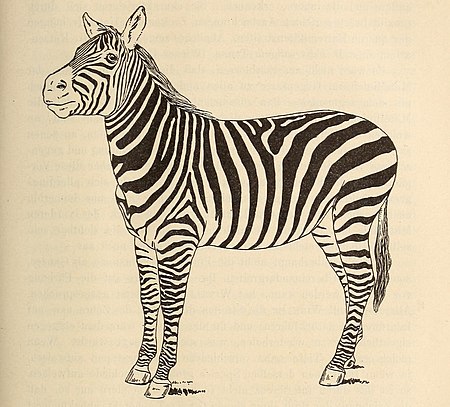Legitimation Crisis (book)
| |||||||||||||||||||||||||
Read other articles:

Charlie Dent Membro della Camera dei rappresentanti - Pennsylvania, distretto n.15Durata mandato3 gennaio 2005 - 12 maggio 2018 PredecessorePat Toomey SuccessoreSusan Wild Dati generaliPartito politicoRepubblicano Charles Charlie Dent (Allentown, 24 maggio 1960) è un politico statunitense, membro della Camera dei Rappresentanti per lo stato della Pennsylvania dal 2005 al 2018. Biografia Nato e cresciuto in Pennsylvania, dopo la laurea Dent lavorò come consulente politico e successiva…

Pemandangan udara dari situs kota dengan kolam kristalisasi garam. Useless Loop (pengucapan: /ˈjusləs/ /lup/; arti harfiah dalam bahasa Indonesia: putaran sia-sia) adalah daerah yang terletak di Heirisson Prong di Selat Denham, di wilayah selatan Situs Warisan Dunia UNESCO bernama Teluk Hiu, di Australia Barat. Kota Denham berada di seberang selat Monkey Mia dekat Denham. Useless Loop adalah kota perusahaan tertutup, terdiri dari 70 karyawan dan keluarganya[1] melayani Solar Salt Opera…

Hirkanus IIRaja, Etnark, dan Imam Tinggi YudeaHurqanos, dari Promptuarii Iconum Insigniorum karya Guillaume RouilléBerkuasa76–66 SM dan 63–40 SM (sebagai Imam Tinggi); 67–66 SM (sebagai Raja); 47–40 SM (sebagai Etnark)PendahuluSalome AlexandraPenerusAristobulus II, kemudian Antigonus II setelah masa pemerintahan Hirkanus sebagai etnark.AyahAleksander Yaneus Kerajaan Hasmonean sampai 63 SM Yohanes Hirkanus II (Hurqanos II ;/hərˈkeɪnəs/, Ibrani: יוחנן הורקנוס Yohanan …

C sedang Mainkan (bantuan·info) . C (Italia: Docode: it is deprecated , Prancis: utcode: fr is deprecated , Jerman: Ccode: de is deprecated ) adalah not pertama dari tangga nada C mayor dan not ketiga dari tangga nada minor asli, umumnya bernada sekitar 261.63 Hz. Dalam bahasa Indonesia, istilah Do biasanya digunakan pada not angka sedangkan C digunakan pada not balok Presentasi grafis C tengah dalam empat kunci nada Posisi C Tengah pada keyboard standar 88 kunci. Tangga nada Tangga …

Artikel ini sebatang kara, artinya tidak ada artikel lain yang memiliki pranala balik ke halaman ini.Bantulah menambah pranala ke artikel ini dari artikel yang berhubungan atau coba peralatan pencari pranala.Tag ini diberikan pada Oktober 2022. Dasar Kebudayaan Kebangsaan (bahasa Inggris: National Culture Policy) adalah sebuah kebijakan pembangunan kebudayaan nasional Malaysia yang dicetuskan pada tahun 1971 di Pulau Pinang. Kebijakan ini didasarkan pada gagasan Kongres Kebudayaan Kebangsaan yan…

عبد حسن المجيد معلومات شخصية تاريخ الميلاد 29 نيسان 1949[بحاجة لمصدر] تاريخ الوفاة 14 آذار 2014 (64 سنة)[بحاجة لمصدر] سبب الوفاة شنق[1] مواطنة العراق اللقب الحاج عبد إخوة وأخوات علي حسن المجيد، وهاشم حسن المجيد الحياة العملية المهنة مسؤول، وضابط الحزب …

Paulinus Yohannes Nuwa Veto Paulinus Yohannes Nuwa Veto (lahir 17 Juli 1970) adalah seorang politikus Indonesia kelahiran Bajawa. Ia tergabung dalam Partai Hati Nurani Rakyat (Hanura).[1] Ia menjabat sebagai Wakil Bupati Nagekeo dari 23 Desember 2013 sampai 23 Desember 2018 mendampingi Elias Djo selaku Bupati Nagekeo.[2] Referensi ^ Profil PAULINUS YOHANES NUWA VETO, S.IP. Lezen. ^ Alfred Dama, ed. (23-12-2013). Lantik Bupati dan Wabup Nagekeo, Gubernur Titip Masalah Tanah.…

American academic and college president Arthur S. Adams8th President of the University of New HampshireIn office1948–1950Preceded byHarold W. StokeSucceeded byRobert F. Chandler Personal detailsBorn(1896-07-01)July 1, 1896Winchester, Massachusetts, USDiedNovember 18, 1980(1980-11-18) (aged 84)Concord, New Hampshire, USAlma materUnited States Naval AcademyUniversity of California, BerkeleyColorado School of Mines Arthur Stanton Adams (July 1, 1896 – November 18, 1980) was an American aca…

South African model and murder victim Reeva SteenkampSteenkamp in an undated photo released by Capacity Relations in February 2013BornReeva Rebecca Steenkamp(1983-08-19)19 August 1983Cape Town, Cape Province, South AfricaDied14 February 2013(2013-02-14) (aged 29)Pretoria, Gauteng, South AfricaCause of deathMurder by gunshotsNationalitySouth African, BritishAlma materNelson Mandela Metropolitan University (2005)Occupation(s)Model, paralegalYears active1997–2013PartnerOscar P…

Radio station in Mobile, AlabamaWNTMMobile, AlabamaBroadcast areaMobile metropolitan areaFrequency710 kHzBrandingNewsRadio 710 WNTMProgrammingFormatNews/talkAffiliationsFox News RadioPremiere NetworksOwnershipOwneriHeartMedia, Inc.(iHM Licenses, LLC)Sister stationsWKSJ-FM, WMXC, WRGV, WRKH, WTKX-FMHistoryFirst air dateSeptember 26, 1946 (as WKRG)Former call signsWKRG (1946–1994)WNTM (1994–2004)WPMI (2004–2007)[1]Call sign meaningNews Talk of Mobile[2][3]Technical in…

1990 compilation album by Led Zeppelin Led Zeppelin RemastersCompilation album by Led ZeppelinReleased15 October 1990 (1990-10-15)RecordedOctober 1968 – December 1978Genre Hard rock heavy metal blues rock folk rock Length145:01LabelAtlanticProducerJimmy PageCompilerJimmy PageLed Zeppelin chronology Led Zeppelin Boxed Set(1990) Led Zeppelin Remasters(1990) Led Zeppelin Boxed Set 2(1993) Professional ratingsReview scoresSourceRatingAllMusic[1]The Encyclopedia of P…

جايسون برينان معلومات شخصية الميلاد سنة 1979 (العمر 44–45 سنة) الولايات المتحدة مواطنة الولايات المتحدة الحياة العملية المدرسة الأم جامعة كيس وسترن ريسرف (التخصص:اقتصاد) (الشهادة:بكالوريوس في الفنون)جامعة نيو هامبشاير (التخصص:فلسفة) (الشهادة:بكالوريوس في الفنون)…

Zebra Selous Equus quagga selousi TaksonomiKerajaanAnimaliaFilumChordataKelasMammaliaOrdoPerissodactylaFamiliEquidaeGenusEquusSpesiesEquus quaggaSubspesiesEquus quagga selousi Sinonim takson[1]lbs Zebra Selous (Equus quagga selousi) adalah sebuah subspesies zebra dataran yang tersebar di belahan tenggara Afrika. Subspesies tersebut banyak ditemukan di Mozambik.[2] Referensi ^ Zicha, Ondrej (2005-09-01). Equus quagga borensis (Selous' Zebra). BioLib.cz (dalam bahasa Latin). Diakse…

For the titanium-hydrogen alloy, see Titanium hydride. Titanium(IV) hydride Names Systematic IUPAC name Titanium(IV) hydride Other names Titanium tetrahydride Titane TiH4 Identifiers CAS Number 14902-91-1 Y 3D model (JSmol) Interactive image ECHA InfoCard 100.035.414 EC Number 238-972-5 PubChem CID 187779 UN number 1871 CompTox Dashboard (EPA) DTXSID90912148 DTXSID1094016, DTXSID90912148 InChI InChI=1S/Ti.4HKey: XOOJFLWSRHQYJN-UHFFFAOYSA-N SMILES [TiH4] Properties Chemical formula TiH4…

Historic house in California, United States United States historic placeMesick HouseU.S. National Register of Historic Places Show map of Sacramento, CaliforniaShow map of CaliforniaShow map of the United StatesLocationSacramento, CaliforniaCoordinates38°35′8.98″N 121°29′37.99″W / 38.5858278°N 121.4938861°W / 38.5858278; -121.4938861Built1875ArchitectGoodell, NathanielArchitectural styleSecond Empire, ItalianateNRHP reference No.82002236 [1&…

This article needs additional citations for verification. Please help improve this article by adding citations to reliable sources. Unsourced material may be challenged and removed.Find sources: Battle of Fort Oswego 1814 – news · newspapers · books · scholar · JSTOR (April 2008) (Learn how and when to remove this message) Battle of Fort OntarioPart of the War of 1812The attack on Fort Ontario, 1814.Date6 May 1814LocationLake Ontario, New YorkResult …

Mass-produced clothing in standard sizes Prêt-à-porter redirects here. For the 1994 film (also released under the title Ready to Wear), see Prêt-à-Porter (film). Off the rack redirects here. For the 1985 TV series, see Off the Rack. Ready-to-wear clothing display Ready-to-wear (RTW) – also called prêt-à-porter, or off-the-rack or off-the-peg in casual use – is the term for garments sold in finished condition in standardized sizes, as distinct from made-to-meas…

Wingecarribee redirects here. For the river, see Wingecarribee River. Local government area in New South Wales, AustraliaWingecarribee ShireNew South WalesLocation in New South WalesCoordinates34°28′S 150°25′E / 34.467°S 150.417°E / -34.467; 150.417Population 47,882 (2016 census)[1] 50,493 (2018 est.)[2] • Density17.807/km2 (46.119/sq mi)Established1 January 1981 (1981-01-01)Area2,689 km2 (1,038.2 sq&#…

Reinforced opening in fabric For other uses, see Buttonhole (disambiguation). Machine-stitched keyhole buttonhole with bar A buttonhole is a reinforced hole in fabric that a button can pass through, allowing one piece of fabric to be secured to another. The raw edges of a buttonhole are usually finished with stitching. This may be done either by hand or by a sewing machine. Some forms of button, such as a frog, use a loop of cloth or rope instead of a buttonhole.[1] The term buttonhole c…

Rumo komune di Italia Rumo (it) Tempat Negara berdaulatItaliaDaerah otonom dengan status istimewaTrentino-Tirol SelatanProvinsi di ItaliaTrentino NegaraItalia Ibu kotaMarcena PendudukTotal791 (2023 )GeografiLuas wilayah30,85 km² [convert: unit tak dikenal]Ketinggian944 m Berbatasan denganBresimo Novella Livo Proveis Revò Ulten Informasi tambahanKode pos38020 Zona waktuUTC+1 UTC+2 Kode telepon0463 ID ISTAT022163 Kode kadaster ItaliaH639 Lain-lainSitus webLaman resmi Rumo adalah komun…